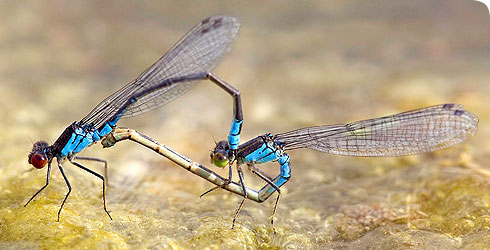Erythromma viridulum (small red-eyed damselfly)
Erythromma viridulum the small red-eyed damselfly thrives in southern Europe and northwest Africa near ponds and lakes that are rich in vegetation.
As our climate warms, these elegant insects are flying further afield and have settled in new habitats as far north as Germany and Britain.
Erythromma viridulum is the first species of dragonfly to have colonised Britain since records began 300 years ago.
In southern and eastern England the small red-eyed damselfly is often the commonest species in many large, weed-rich lakes.
Species detail
Adult males of the small red-eyed damselfly Erythromma viridulum are black with blue markings at the tip and base of the abdomen and have distinctive red eyes. The female is less colourful, but has thin green or blue lines along the thorax.
They are often confused with the red-eyed damselfly Erythromma najas that has similar blue markings but differ because they do not extend onto the sides of abdominal segments 2 and 8.
-

Distribution and habitat
The small red-eyed damselfly which is taking flight and moving northwards as our climate warms. Find out more.
-

Biology
The male and female damselfly can be seen flying in tandem during mating. Find out more about the reproductive patterns and lifecycle of the small red-eyed damselfly.
-

Conservation
Not currently a conservation concern, discover reasons why the small red-eyed damselfly is expanding its range and why it is significant that the species has colonised Britain.
Distribution
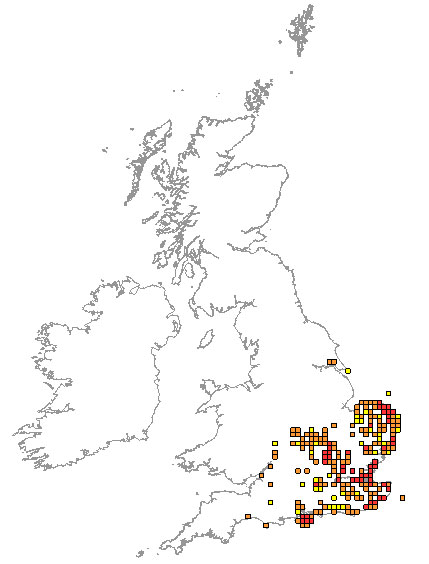
Distribution in England. Red squares are records between 1999-2002, orange squares records between 2003-2006, yellow squares records between 2007-2009.
Images
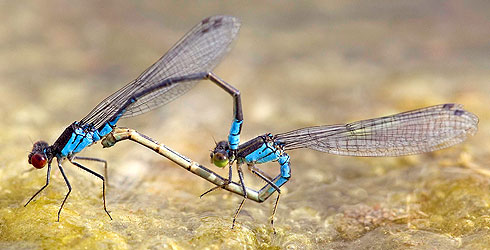
Erythromma viridulum (small red-eyed damselfly) - male (left) and female (right)
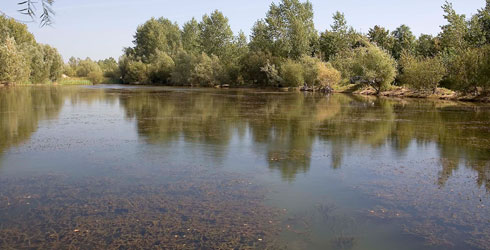
A typical breeding site with hornworts close to the water surface.
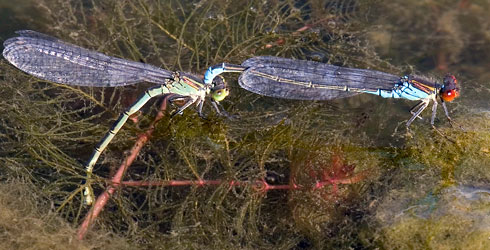
Female laying eggs into the stem of hornwort, the male is contact guarding the female.
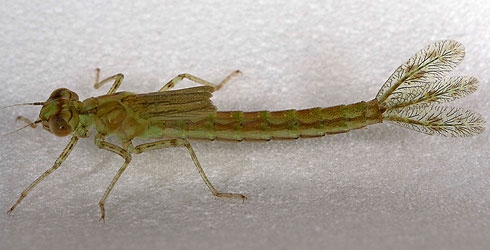
Erythromma viridulum larva
About the author

Mr Steve Brooks
A research entomologist with a special interest in freshwater insects and environmental change.
